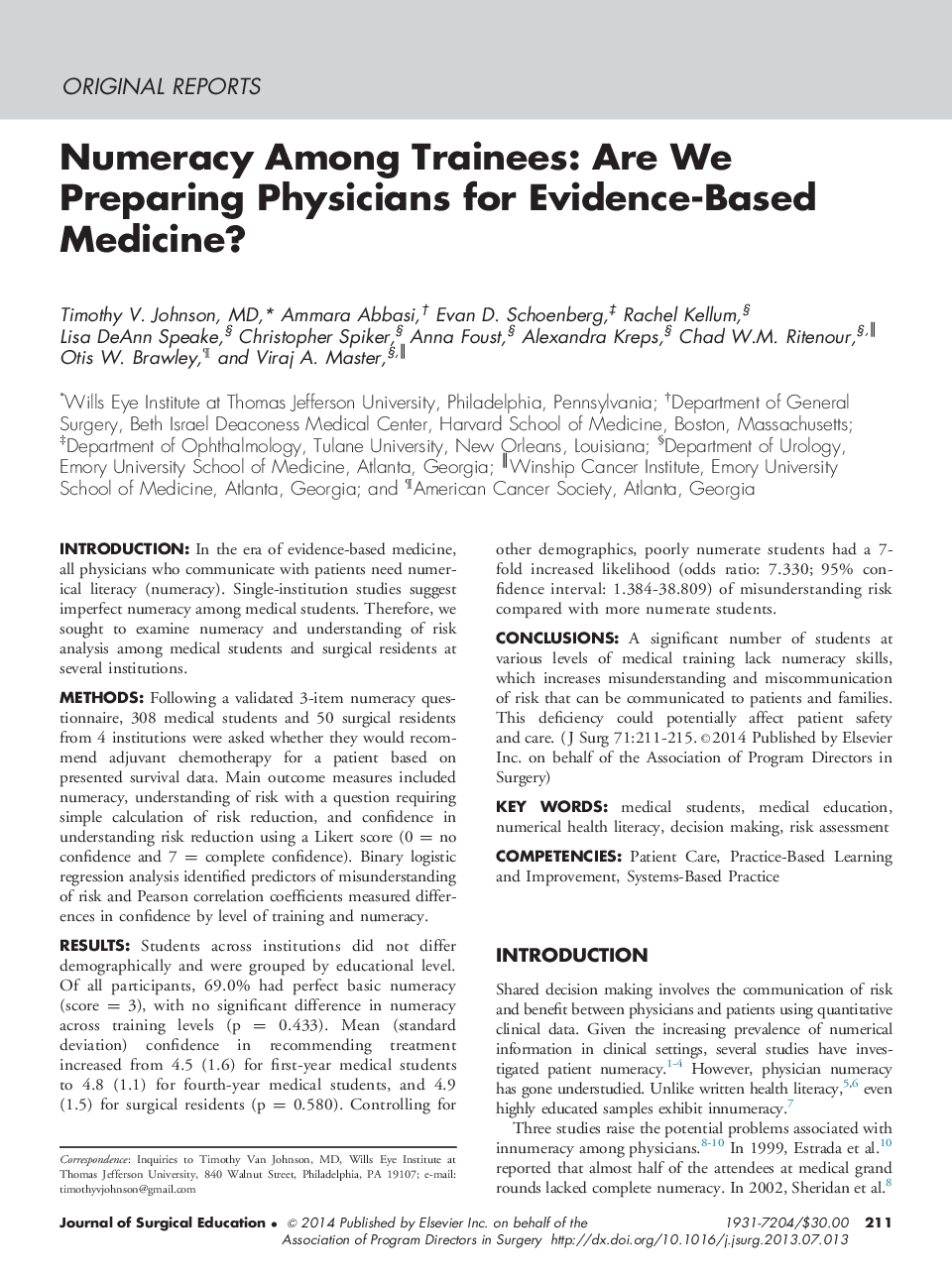| Article ID | Journal | Published Year | Pages | File Type |
|---|---|---|---|---|
| 4297605 | Journal of Surgical Education | 2014 | 5 Pages |
IntroductionIn the era of evidence-based medicine, all physicians who communicate with patients need numerical literacy (numeracy). Single-institution studies suggest imperfect numeracy among medical students. Therefore, we sought to examine numeracy and understanding of risk analysis among medical students and surgical residents at several institutions.MethodsFollowing a validated 3-item numeracy questionnaire, 308 medical students and 50 surgical residents from 4 institutions were asked whether they would recommend adjuvant chemotherapy for a patient based on presented survival data. Main outcome measures included numeracy, understanding of risk with a question requiring simple calculation of risk reduction, and confidence in understanding risk reduction using a Likert score (0 = no confidence and 7 = complete confidence). Binary logistic regression analysis identified predictors of misunderstanding of risk and Pearson correlation coefficients measured differences in confidence by level of training and numeracy.ResultsStudents across institutions did not differ demographically and were grouped by educational level. Of all participants, 69.0% had perfect basic numeracy (score = 3), with no significant difference in numeracy across training levels (p = 0.433). Mean (standard deviation) confidence in recommending treatment increased from 4.5 (1.6) for first-year medical students to 4.8 (1.1) for fourth-year medical students, and 4.9 (1.5) for surgical residents (p = 0.580). Controlling for other demographics, poorly numerate students had a 7-fold increased likelihood (odds ratio: 7.330; 95% confidence interval: 1.384-38.809) of misunderstanding risk compared with more numerate students.ConclusionsA significant number of students at various levels of medical training lack numeracy skills, which increases misunderstanding and miscommunication of risk that can be communicated to patients and families. This deficiency could potentially affect patient safety and care.
